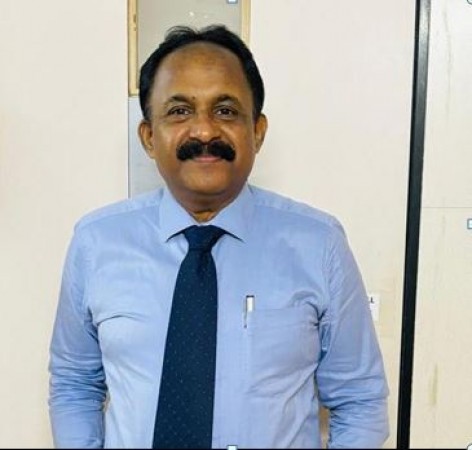
Mumbai (Maharashtra) [India], July 22:Fatty liver disease, spanning from simple hepatic steatosis to the more insidious non-alcoholic steatohepatitis (NASH) and the emerging metabolic dysfunction-associated steatohepatitis (MASH), is rapidly escalating into a significant global health crisis. These conditions are intricately linked with metabolic disorders such as obesity, type 2 diabetes, and cardiovascular ailments. The progression from fatty liver to NASH, MASH, and beyond can lead to severe complications, making the implementation of effective preventive measures paramount. Fatty liver disease manifests when excessive fat accumulates in liver cells. This condition is primarily classified into two categories:
NAFLD is further divided into:
The Cascade of Complications from Fatty Liver, NASH, MASH, and Metabolic Diseases
Fibrosis and Cirrhosis: Progressive liver scarring that impairs liver function.
Hepatocellular Carcinoma: An increased risk of liver cancer.
Atherosclerosis: The build-up of fats and cholesterol in the artery walls.
Heart Disease: Higher incidence of coronary artery disease and heart attacks.
Retinopathy: Damage to the retina of the eyes.
WORLD FATTY LIVER DAY 2024: KEY INSIGHTS AND MESSAGES
World Fatty Liver Day 2024 spotlighted the pressing need for global awareness and proactive action against fatty liver disease and its associated conditions. Key messages from this year's campaign included:
Rising Prevalence: Fatty liver disease impacts millions worldwide, with NAFLD being the most prevalent liver disorder in Western nations.
Importance of Early Detection: Screening and early diagnosis are vital for managing and preventing the progression of fatty liver disease to more severe forms.
Role of Lifestyle Changes: Public health initiatives emphasized the crucial role of a healthy diet and regular physical activity in preventing and managing fatty liver disease.
Collaboration and Research: Encouragement of global collaboration in research to develop better diagnostic tools and treatments for fatty liver disease.
PREVENTIVE STRATEGIES: A MULTIDIMENSIONAL APPROACH
1. LIFESTYLE MODIFICATIONS:
DIET: A balanced diet rich in fruits, vegetables, whole grains, and lean proteins can help manage body weight and reduce liver fat. Avoiding sugar-sweetened beverages and high-fat foods is crucial.
PHYSICAL ACTIVITY: Engaging in regular exercise (at least 150 minutes of moderate-intensity or 75 minutes of high-intensity exercise per week) helps reduce liver fat, improve insulin sensitivity, and promote cardiovascular health.
WEIGHT MANAGEMENT: Achieving and maintaining a healthy weight can thwart the progression of fatty liver to NASH and MASH, and reduce the risk of metabolic diseases.
2. PHARMACOLOGICAL INTERVENTIONS:
INSULIN SENSITIZERS: Medications like metformin and thiazolidinediones can improve insulin sensitivity and reduce liver fat.
LIPID-LOWERING AGENTS: Statins and fibrates help manage dyslipidemia, reducing the risk of cardiovascular complications.
ANTIOXIDANTS AND ANTI-INFLAMMATORY AGENTS: Vitamin E and other antioxidants may reduce liver inflammation and fibrosis in NASH and MASH patients.
3. REGULAR MONITORING AND EARLY INTERVENTION:
SCREENING: Regular screening for liver function, glucose levels, and lipid profiles in high-risk individuals can aid in early detection and management.
MEDICAL CHECK-UPS: Regular consultations with healthcare providers for timely adjustments in treatment plans and lifestyle recommendations.
A CALL TO ACTION: EMBRACE A HEALTHIER FUTURE
The battle against fatty liver disease, NASH, MASH, and metabolic diseases is not just a medical challenge but a personal and collective one. Embracing healthier lifestyles can lead to transformative changes, enhancing our quality of life and longevity. By making informed dietary choices, engaging in regular physical activity, and staying vigilant with health check-ups, we can stave off these debilitating conditions.
By addressing these issues with urgency and determination, we can aspire to reduce the burden of these diseases and enhance the overall health of our population. Together, we can make a difference. Let’s take collective action now and foster a brighter, healthier tomorrow for all.
DR.THOMAS KOSHY,
MBBS, MD (GENERAL MEDICINE), MHA, FCCP, FACP(USA), FRCP(Glasgow)
FELLOW OF THE AMERICAN COLLEGE OF PHYSICIANS
FELLOW OF THE ROYAL COLLEGE OF PHYSICIANS AND SURGEONS, GLASGOW
Is a Consultant in General Medicine, Cardiology & Diabetology since past 33 years
CONSULTING IN:
Holy Trinity Hospital, Mulund West
10 am to 12 noon & 7 pm to 9 pm, Monday to Saturday
022-25641155 / 022-25644477
Dr.L.H.Hiranadani Hospital, Powai
2 pm to 5 pm, Monday to Saturday, 022-71023500
Also attached to :
Fortis Hospital , Mulund(W)
M.T. Agarawal Municipal Hospital, Mulund(W)
www.drthomaskoshy.com / drkoshy.thomas@gmail.com / +91-9821033704
https://www.facebook.com/profile.php?id=61550777678421&mibextid=LQQJ4d
https://instagram.com/dr.thomaskoshy?igshid=MzMyNGUyNmU2YQ==
The Sweet Spot: Timing Your Sugar Intake for a Healthier You
Stay Safe This Monsoon: Tips to Avoid Food Poisoning and Manage Symptoms